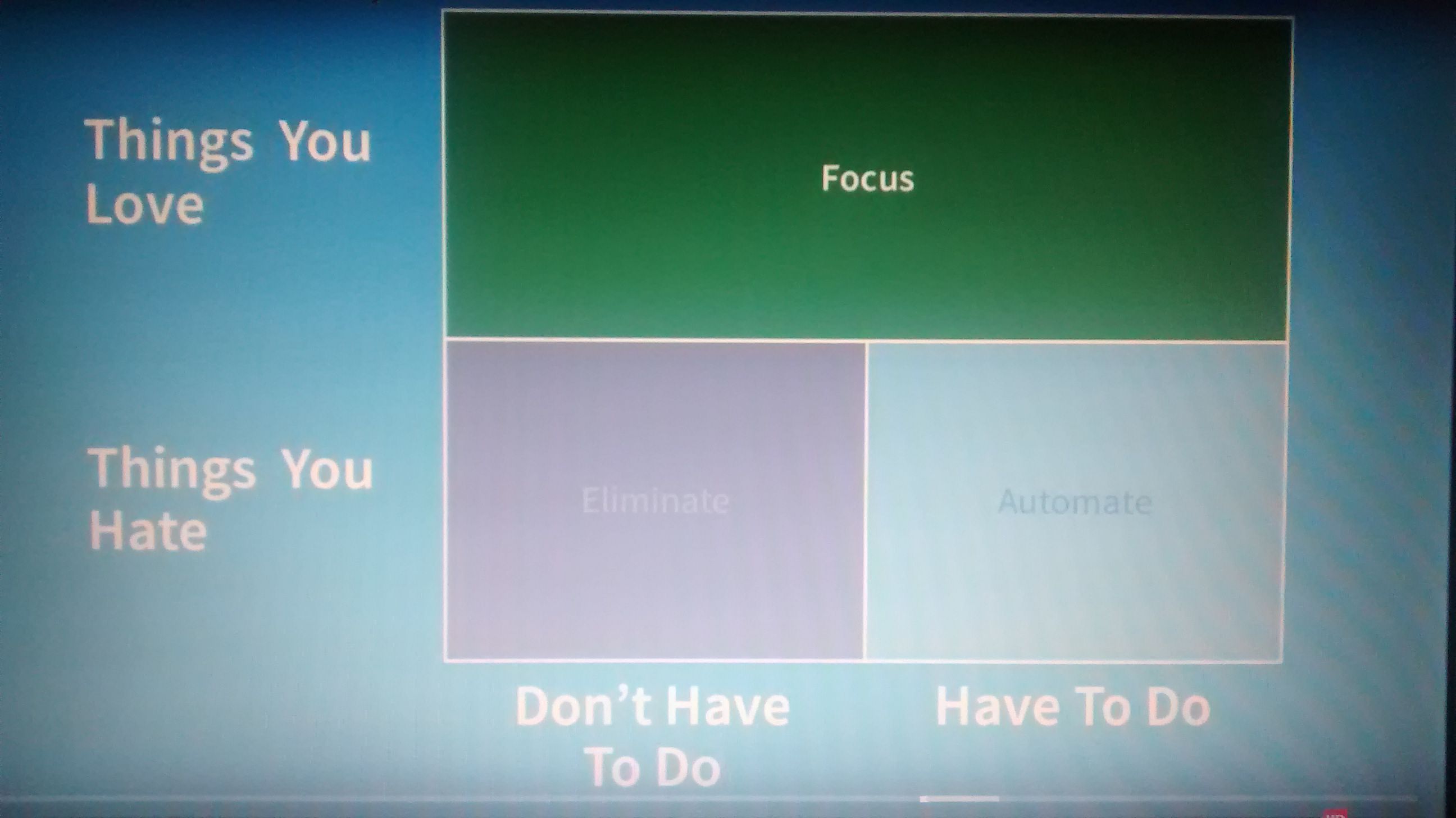Follow your bliss. We’ve heard it, aspired to it and perhaps proffered it up as advice despite not having attained it ourselves, but do we know where it really leads?
Often to disappointment and exploitation argues University of Melbourne’s Miya Tokumitsu, whose analysis of the ‘do you what you love’ mantra went viral after appearing in Jacobin, honing in on our preoccupation with work and fulfillment.
I think today work is everything to people. Work was always a big part of people’s lives, it’s what you depended on for your livelihood. But now, with the ‘do what you love’ paradigm it’s also supposed to be the place where you find yourself and fulfil your destiny, where you fully realise your own self-hood.
Dr Tokumitsu is an art historian specialising in the medieval, renaissance and baroque periods. As someone who analyses images for a living, she wondered about the profusion of utopian, bucolic workspaces she kept encountering in magazines, blogs and other social media.
She was similarly struck when Apple founder Steve Jobs died, and, as a tribute, people all over Silicon Valley turned up in Jobs’ trademark black turtleneck and blue jeans. What significance did these items of clothing carry?
“It was just so visually powerful: these totally banal clothing items, almost aggressively banal for such a powerful person. And they had become metonyms for Apple, and beyond Apple. Metonyms for genius and a kind of enlightened way of working.â€
Jobs’ turtleneck and jeans projected a worker persona that was casual, passionate and authentic. He was bringing his real self – not a phony, dressed-up version – to work, and he could do that because he loved it.
What Dr Tokumitsu had identified was an important shift or realignment of the protestant work ethic (a term coined by Max Weber in The Protestant Ethic and the Spirit of Capitalism, 1904–05). Under the influence of the protestant work ethic, work was a moral endeavour: we worked hard and this made us good, pleasure did not figure.
Then the summer of love arrived, and pleasure became a moral force.
In the 60s and 70s, whether it was eastern or western religion, or even psychedelic drugs, finding the authentic you became a righteous thing to do, and pursuing pleasure the new virtue. This became entangled with the work ethic: if working is good and wealth accumulation is good and uncovering a real you is good, and we put those together, doing what you love is the best possible expression of being good.
You hear this message repeated by people like Steve Jobs and Oprah Winfrey, ‘you have to live your best life’ and ‘you have to fulfil your destiny’, and it’s really a killing message.
It’s a killing message because in swallowing the ‘do what you love’ rhetoric wholesale, we haven’t grappled with its shadow: it sets us up with grand expectations, makes us feel like failures if we don’t follow our passions or don’t have any, makes us self-centred and sets us up for exploitation.
In a world where workers are working longer hours, ‘passion’ has become shorthand for being prepared to work beyond the call of duty. In being so happy about what we’re doing, we shouldn’t mind working late, on our weekends or evenings.
“Most people can tell themselves ‘you’re really doing it because you love it’, which on one hand can take the edge off, but it’s really dangerous because it can really lead people to their own exploitation.â€
And the rhetoric is travelling further than creative, sought-after jobs, and trickling into low wage sectors. Tokumitsu cites an ad she saw in Craigslist asking for house cleaners who were ‘passionate about cleaning’.
“There are cynical actors out there who are absolutely using this to exploit people. Especially with the gig economy or freelancing in, for instance, journalism. There’s a lot of I’ll just write for exposure, I’ll just write to get a by-line, I’ll just write to get a portfolio.â€
In addition to this, employers are demanding this authenticity be mined for profit, where workers are being asked to only display positive attitudes to their work, and in service-oriented cultures, emotions are being sold. Happy, fulfilled, passionate service delivered by happy, fulfilled, passionate workers.
It’s deeply intrusive, argues Dr Tokumitsu, “You can’t even have your own thoughts, it’s a kind of surveillance that has a nice veneer, but not even your own mind can be your retreat.â€
And this extends to our home lives. Where we might have been expected to have a different persona at work and at home, increasingly the lines are blurring.
“The do what you love rhetoric, because it revolves around authenticity, insists there’s one only true way to be yourself: you have to be that way at work, and at home with your loved ones.
“It forces us to be public all the time – there’s no cycle any more. So it’s oppressive and exhausting.â€
While Oprah, start-up gurus and successful artists might have good reason to recommend following their bliss, most of us find ourselves doling out the same mantra to children or people seeking career advice, without having thought it through.
You want to be encouraging, and what other advice is there to give? But we need to be talking about the other side of this, teaching young people how to make sure they’re not exploited and how to protect themselves.
“We also need to make sure they’re not being discouraged. A lot of pleasure and satisfaction in work comes from time. It comes with experience and there are no shortcuts to that. People assume that if it’s right it’s going to feel right straight away, and it’s going to come from passion.â€
But passion, Dr Tokumitsu argues, is a specific temperament and one not everyone shares.
“A family therapist who contacted me (in response to the original article) said he’s actually seen a lot of stress and anxiety in his younger patients because they don’t know what they love to do and they feel like something’s wrong with them.
“It’s also a very narrow perspective on getting pleasure from work. There are other ways that people have found satisfaction and purpose through work, that’s not just being blissed out by the actual tasks of the work. Even by simply acknowledging that you’re caring for your family or that you’re contributing to your community.
“So these are other ways of finding pleasure in work that aren’t all about ‘what is it exactly that I want to be doing at this moment?’ I think it’s creating a lot of disappointment and disillusionment.
We seem to have forgotten that there are other ways of loving what you do that don’t have to be profitable.
As an example, Dr Tokumitsu cites the documentary, Finding Vivian Maier.
Maier was a nanny in Chicago, as well as an amazing photographer who hid her photographs … nobody knew she had all this talent until after she’d died. So much of the commentary in the film was, ‘she could have been a famous art photographer if she had just walked into a gallery in Chicago’.
“The narrative keeps returning to that notion, but she wasn’t necessarily a nanny who was a frustrated talent but rather, she used her wages as a nanny to be able to take pictures. And to keep it to herself.â€
If we can deconstruct the conflation of work, pleasure and profit it’s possible to see an array of configurations of these elements in our lives, without the added stress of having to find it all in our day jobs.


